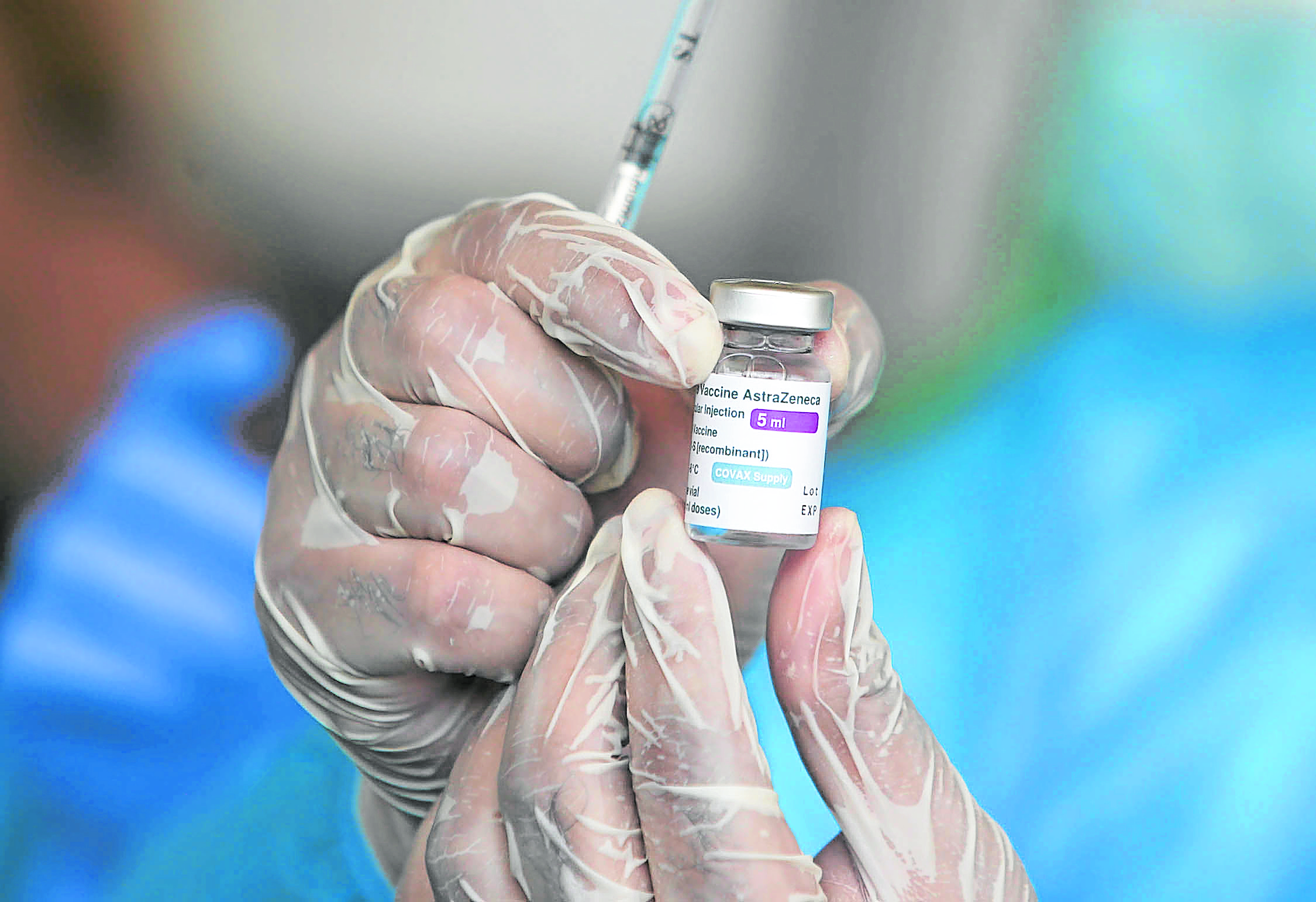Over half of AstraZeneca vaccine share of C. Visayas unused

VITAL JAB The rollout of the AstraZeneca vaccine in Central Visayas has ended but only 46 percent of the region’s allocation has been used. —MARIANNE BERMUDEZ
CEBU CITY—More than half of the allocation of COVID-19 vaccines from British-Swedish drugmaker AstraZeneca have not been used by health workers in Central Visayas as the vaccination drive in the region ended on Tuesday, an official of the Department of Health (DOH) said.
Dr. Mary Jean Loreche, DOH regional spokesperson, said all health facilities were given until March 23 to use all the 29,520 AstaZeneca doses received from the national government on March 4.
The unused vaccines, she said, can be redistributed to other subgroups on the priority list, such as senior citizens and other front-liners in the region.
“We might extend the deadline but we’re still waiting for further advice from the (DOH) central office,” Loreche said.
The DOH earlier said it would recall any excess vaccines after the deadline and redistribute these to areas with high cases of COVID-19.
30K doses for region
As of March 23, DOH records in the region showed that 13,781 doses, or about 46 percent of the 29,520 doses from AstraZeneca, had been used.
Central Visayas received from the national government 30,000 doses of AstraZeneca vaccine and 80,760 doses of CoronaVac, a vaccine produced by Chinese firm Sinovac Boiotech.
Half of the Sinovac vaccines had been set aside for the second dose which would be given 28 days after the first dose. The second dose of AstraZeneca would be given on the 12th week after the first dose.
The AstraZeneca vaccines will expire on May 31 while those from Sinovac will be good until Jan. 13, 2024, Loreche said.
DOH records showed that at least 37,135 health-care workers in Central Visayas had received their first dose of either Sinovac or AstraZeneca as of March 23. The number represents about 42 percent of the 89,017 health-care workers on the region’s vaccine master list.
Info campaign
Loreche said a “massive information campaign” should be done to encourage people to be inoculated to contain the spread of the virus.
“There would be a series of meetings with our doctors. It is important that we have to meet with our specialists in the various medical societies because we have to be one in our dissemination of information,” she said.
“The doctors must be on board with us so that they can answer the questions of people. The way to go really is to get vaccinated, whether we like it or not,” she added.
Dr. Joan Antonette Albito, Central Visayas medical coordinator of the National Immunization Program, said it was a challenge to convince people to get vaccinated.
“We are really depending on educating the public on the importance of these vaccines. Education is the key to getting their support,” said Albito.































